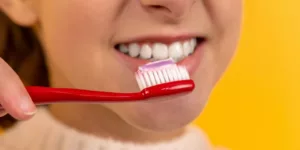Gum complications such as bleeding gums that recur may indicate you are suffering from gum disease. Though the condition is common, it is detrimental to your overall well-being, and it would be best to seek a periodontist as soon as possible. Dr. Scott Young, DDS, The Woodlands periodontist, specializes in managing gum disease and can help you. The condition develops due to bacteria buildup between your teeth and gums and can lead to more severe complications if left untreated. You can avoid the complication or prevent the development of the condition by maintaining good oral hygiene as outlined below.
Teeth Brushing
This is a basic practice that you should always maintain regularly. Your periodontist can recommend you brush your teeth after every meal or at least twice a day to avoid plaque buildup. You can brush in the morning and night before you sleep to remove any debris from your teeth and gums. However, it is not just brushing but ensuring you do it right. Consult your provider to understand the best type of toothbrush to use that won’t harm your gums and also seek to learn how to do the brushing.
Flossing
Flossing is another basic oral hygiene practice that can help you avoid gum disease and improve symptoms. It is highly recommended that you floss your teeth after every meal to help remove the food particles and any bacteria that cause periodontal disease. Your periodontist can help you learn to do the flossing right.
Rinsing
It is vital to rinse your mouth using a special mouthwash to kill bacteria. Gargle a mouthwash with no alcohol or any other additive to help remove the food particles and bacteria you might have missed when brushing and flossing. Additionally, this can keep your teeth clean and give you brighter teeth by combining them with other oral hygiene practices.
Professional Cleaning
You should develop a regular behavior of seeking professional teeth cleaning. Generally, you can schedule your professional cleanings annually to minimize your risks for developing periodontal disease. Your provider can clean the hard-to-reach parts of your mouth and can eliminate anything you might have left out. Additionally, professional cleanings provide an opportunity for your doctor to evaluate your oral health and detect problems.
Deep cleaning is one of the common treatments for gum diseases as it helps control the infection or eliminate the plaque causing the infection. The tartar below and above your gum line can be scraped off through scaling, and the rough spots and the infiltrated cement are removed through root planning.
Adjusting Diet
What you eat affects your oral health significantly. Therefore, adjusting your diet can aid in maintaining good oral hygiene habits to improve some symptoms and prevent gum disease. Starchy foods and sugary foods are notorious for contributing to gum disease and should be avoided. Instead, try adding on your diet foods rich in vitamins C and A and regularly eat fruits and vegetables to maintain a healthy set of teeth.
Periodontists are the best medical experts who can help you avoid and manage gum disease. Reach out to Scott Young DDS today to learn more. Dr. Young is a board-certified periodontist and will advise you accordingly.








